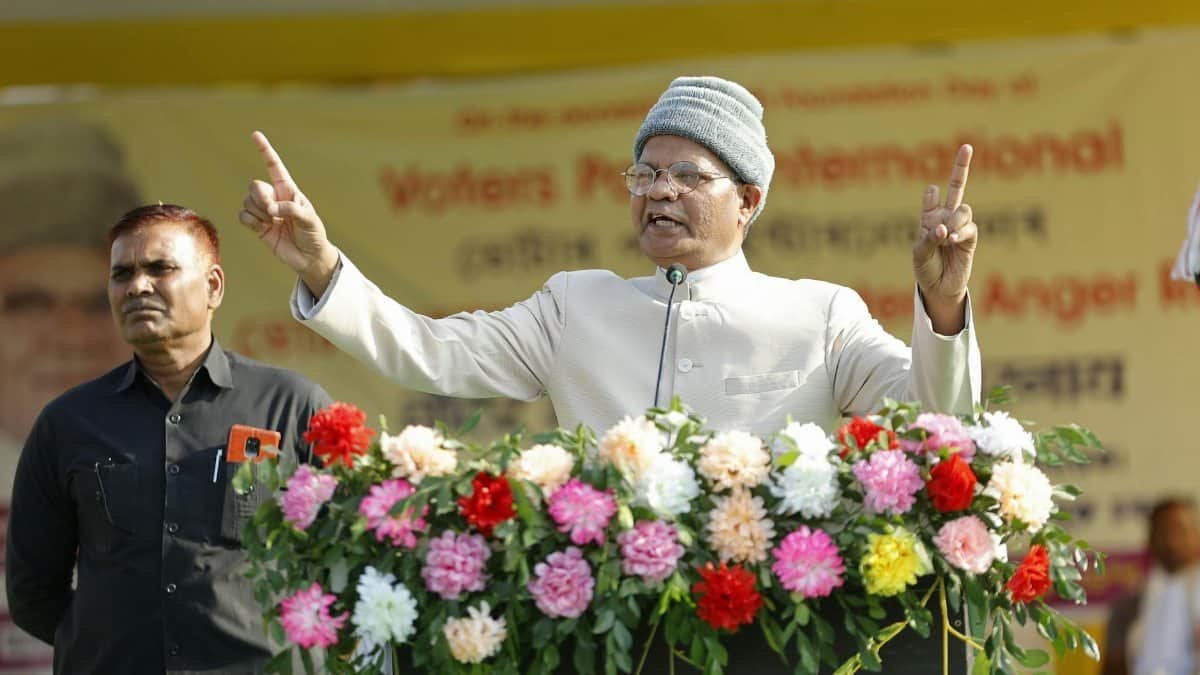Simply put, denver contemplative policy is a fresh framework where think tanks assess legislation through the lens of mindfulness and human psychology, aiming to promote unity over division. In Denver, this concept took shape on February 1, 2025, with the launch of the Institute for Contemplative Governance (ICG). Backed by tech philanthropists, the institute promises non-partisan insights for lawmakers, evaluating how bills might build social bonds or fuel ego-fueled rivalries. This innovative method could reshape policy debates amid rising U.S. polarization, offering a contemplative edge to governance in 2025.
Launch Date and Location Details

The Institute for Contemplative Governance officially opened in Denver, Colorado, on February 1, 2025. This timing aligns with a growing interest in mindful approaches to public issues, especially in a city known for its progressive vibe. Denver’s selection as the hub makes sense, given its blend of tech innovation and wellness culture. The institute’s debut marks a deliberate step toward integrating contemplative principles into policy work, positioning the city as a pioneer in this niche. Lawmakers from across the U.S. could soon turn here for guidance, as the ICG aims to influence decisions that affect everyday Americans.
Backing from Tech Philanthropists

A coalition of tech philanthropists provided the financial muscle for the ICG’s launch. These backers, drawn from the innovation sector, see value in applying contemplative tools to governance challenges. Their support underscores a trend where Silicon Valley-style funding meets social good initiatives. In 2025, with tech giants increasingly involved in policy, this backing ensures the institute starts strong. It also highlights how private wealth is steering efforts to combat societal divides, without partisan ties.
Mission to Analyze Policy Impacts

At its core, the ICG’s mission focuses on delivering non-partisan analysis to lawmakers. The institute evaluates proposed policies based on their potential to enhance social cohesion or exacerbate ego-driven tribalism. This means scrutinizing bills for subtle psychological effects, such as whether they encourage collaboration or deepen us-versus-them mentalities. In a divided nation, this approach could help craft laws that unite rather than polarize. The emphasis on neutrality ensures the analysis remains credible, appealing to both sides of the aisle.
Focus on Social Cohesion

One key pillar of the ICG’s work is promoting social cohesion through policy review. By examining how legislation might strengthen community ties, the institute aims to guide lawmakers toward inclusive outcomes. This contemplative lens draws from broader U.S. trends in mindfulness, where practices like meditation inform decision-making. For instance, policies on education or healthcare could be assessed for their role in building empathy. In 2025, as social fragmentation persists, such analysis could prove vital. Reputable sources like the Pew Research Center’s Social Trends page highlight ongoing divides, underscoring the need for cohesive strategies.
Addressing Ego-Driven Tribalism

The ICG specifically targets ego-driven tribalism, a term for the self-centered divisions that plague modern politics. Their analyses will flag policies that might amplify these issues, such as those fueling online echo chambers or partisan conflicts. This novel tactic borrows from contemplative traditions, urging a shift from reactive to reflective governance. Amid 2025’s heated debates on topics like immigration and climate, the institute’s input could temper extremes. It’s a proactive stance against the tribalism seen in recent U.S. elections, aiming for policies that prioritize collective well-being over individual egos.
Novel Approach to Public Policy

What sets the ICG apart is its novel approach, blending contemplative insights with traditional policy analysis. Unlike standard think tanks, it incorporates elements of mindfulness to evaluate human behavior in legislation. This could transform how bills are debated, introducing a layer of psychological awareness. In Denver, this denver contemplative policy model represents an evolution in governance, potentially inspiring similar efforts nationwide. The institute’s method challenges the status quo, pushing for policies that foster deeper societal harmony rather than surface-level fixes.
Implications for Lawmakers

Lawmakers stand to gain practical tools from the ICG’s non-partisan reports. By receiving breakdowns on a policy’s potential to unite or divide, they can make informed choices. This is especially relevant in 2025, with Congress facing gridlock on key issues. The institute’s work might encourage bipartisan cooperation, reducing the ego clashes that stall progress. Early adopters could include state legislators in Colorado, expanding to federal levels. For broader context on policy innovation, resources from the Brookings Institution’s Research page offer insights into similar governance experiments.
Potential Challenges Ahead

While promising, the ICG’s contemplative focus may face skepticism from traditional policy circles. Critics might question whether ego and tribalism analyses are too subjective for hard-nosed governance. Building credibility will require rigorous, evidence-based methods. In Denver’s dynamic scene, the institute must navigate funding dependencies on tech philanthropists to maintain independence. As 2025 unfolds, measuring real-world impact—such as influencing a bill’s passage—will be key. Still, this denver contemplative policy initiative signals a bold step toward more humane lawmaking.
Broader U.S. Context in 2025

The ICG’s opening taps into 2025’s U.S. trends toward integrative governance. With rising interest in mental health and social unity, contemplative policy could gain traction beyond Denver. It aligns with national efforts to heal divisions post-pandemic and amid cultural shifts. Philanthropic support from tech sectors mirrors wider investments in ethical AI and community-building. As lawmakers grapple with polarization, the institute’s model offers a timely alternative, potentially setting a precedent for other cities to adopt similar frameworks.
